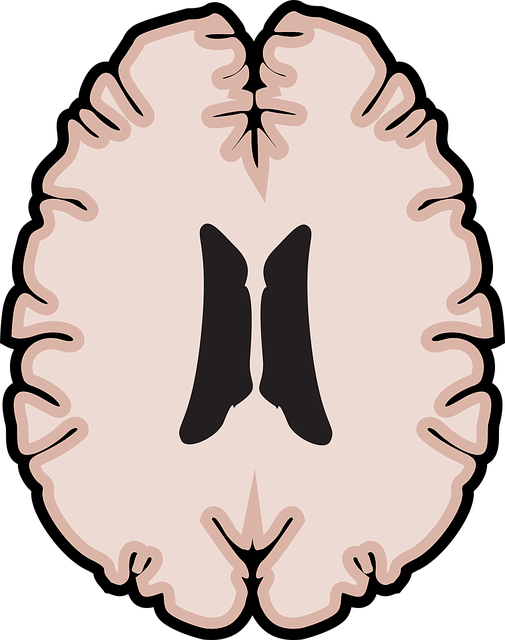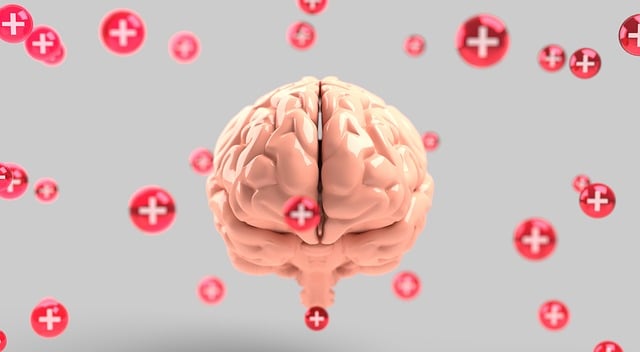Crisis Intervention Teams (CITs) in Colorado Springs are transforming mental health crisis response with specialized training from local divorce therapy experts. By integrating diverse practices and mental healthcare approaches, these teams offer culturally sensitive interventions. The holistic training enhances emotional support, improves client connections, and promotes long-term recovery. Colorado Springs Divorce Therapy's innovative programs lead the way, fostering collaboration and comprehensive care for at-risk populations, ultimately strengthening community well-being through effective crisis intervention strategies.
“In today’s challenging social landscape, Crisis Intervention Team (CIT) training programs play a pivotal role in equipping communities with essential tools for managing crises. This article delves into the significance of CITs, highlighting their potential to mitigate high-risk situations. We explore the unique contribution of divorce therapists in crisis response, examining specialized training programs and their profound impact. Through a case study of Colorado Springs’ initiatives, we demonstrate effective community support strategies post-training, emphasizing the long-lasting benefits for at-risk individuals. Discover how these programs transform communities, especially through the lens of Colorado Springs Divorce Therapy.”
- Understanding Crisis Intervention Teams: A Vital Resource for Communities
- The Role of Divorce Therapists in Crisis Response
- Training Programs: What to Expect and Their Impact
- Colorado Springs as a Case Study: Local Initiatives and Successes
- Enhancing Community Support: Post-Training Strategies and Continuous Improvement
Understanding Crisis Intervention Teams: A Vital Resource for Communities

In many communities, Crisis Intervention Teams (CITs) are emerging as vital resources for addressing mental health crises and preventing tragic outcomes. These specialized teams, often composed of law enforcement officers, paramedics, and mental health professionals, provide immediate support to individuals in distress. By integrating Colorado Springs divorce therapy and other forms of mental healthcare into CIT training programs, communities can ensure that these interventions are culturally sensitive and tailored to diverse needs. This approach not only enhances the effectiveness of crisis response but also fosters a more inclusive and supportive environment for those facing severe emotional turmoil.
Furthermore, effective CIT training goes beyond basic skills in de-escalation and mood management. It includes social skills training, which equips team members with the ability to communicate effectively with individuals from various cultural backgrounds, ensuring that every member of the community receives respectful and competent care. This holistic approach recognizes the interconnectedness of mental health, public safety, and social support, ultimately strengthening the fabric of communities across the nation.
The Role of Divorce Therapists in Crisis Response

In crisis intervention settings, divorce therapists play a pivotal role in providing immediate support and guidance to individuals facing high-stress situations. These professionals are trained to offer effective strategies for managing intense emotions and making critical decisions during volatile times. By integrating techniques from Colorado Springs Divorce Therapy, therapists help clients navigate through challenges related to separation or divorce, fostering mental wellness. The focus is on promoting self-esteem improvement and offering a safe space for vulnerable individuals to process their feelings.
Designed with the Mental Health Education Programs concept in mind, these crisis intervention team training programs prepare therapists to respond sensitively and efficiently. Through ongoing training, they gain skills to handle diverse scenarios, ensuring they are equipped to support clients beyond traditional therapy settings. This specialized preparation is crucial for addressing complex emotional issues that often arise during crises, ultimately contributing to improved outcomes for those in need.
Training Programs: What to Expect and Their Impact

Training programs for crisis intervention teams offer a structured approach to equipping individuals with the skills needed to support others during challenging times. These programs typically cover a range of topics designed to enhance participants’ understanding and responsiveness in high-stress situations, such as those often faced in Colorado Springs Divorce Therapy settings.
Expect immersive experiences that blend theoretical knowledge with practical exercises. Participants learn effective communication strategies, emotional regulation techniques like compassion cultivation practices, and stress management workshops organization methods. The impact is multifaceted: improved ability to connect with individuals in crisis, better coping mechanisms for both the helper and the client, and enhanced overall emotional intelligence. These skills are invaluable for professionals navigating complex personal situations, fostering a supportive environment that promotes healing and growth.
Colorado Springs as a Case Study: Local Initiatives and Successes

Colorado Springs, known for its scenic beauty and vibrant community, has emerged as a model for crisis intervention team (CIT) training programs. Local initiatives have focused on equipping mental health professionals with advanced skills to handle critical situations involving emotional distress, suicide attempts, and other mental health crises. These efforts are particularly noteworthy given the city’s history of dealing with high-stress environments, such as military bases and college campuses.
One standout program is Colorado Springs Divorce Therapy, which integrates CIT training into its comprehensive approach to mental health care. By fostering collaboration among therapists, first responders, and community support staff, this initiative ensures a coordinated response to individuals in crisis. This holistic strategy not only enhances the effectiveness of risk management planning for mental health professionals but also contributes to better anxiety relief and mood management for those facing overwhelming emotional challenges. The program’s success lies in its ability to create a supportive network that addresses both immediate crisis intervention and long-term recovery support.
Enhancing Community Support: Post-Training Strategies and Continuous Improvement

Post-training strategies play a pivotal role in sustaining the impact of crisis intervention team (CIT) programs and fostering a supportive community environment, especially for at-risk populations like those seeking Colorado Springs divorce therapy. Immediately following formal training, CIT members can engage in ongoing support networks to reinforce their skills and knowledge. This may include peer mentoring programs where experienced professionals guide newly trained team members, ensuring they feel supported and capable of handling real-life crisis situations effectively.
Moreover, integrating mental health policy analysis and advocacy into the post-training curriculum empowers CIT members to go beyond immediate intervention. By understanding the broader landscape of mental health services and systems, team members can contribute to resilience building within their communities. This includes advocating for improved access to depression prevention programs, resources, and services, ultimately enhancing the overall mental well-being of individuals and families in Colorado Springs and similar settings.
Crisis intervention team (CIT) training programs are invaluable assets for communities, especially in places like Colorado Springs where access to divorce therapy and mental health resources is crucial. As seen through local initiatives, these programs empower individuals to respond effectively during crises, fostering a supportive network. Post-training, continuous improvement strategies, including community outreach and collaboration with professionals like Colorado Springs divorce therapists, ensure lasting impact and enhanced crisis management capabilities.














